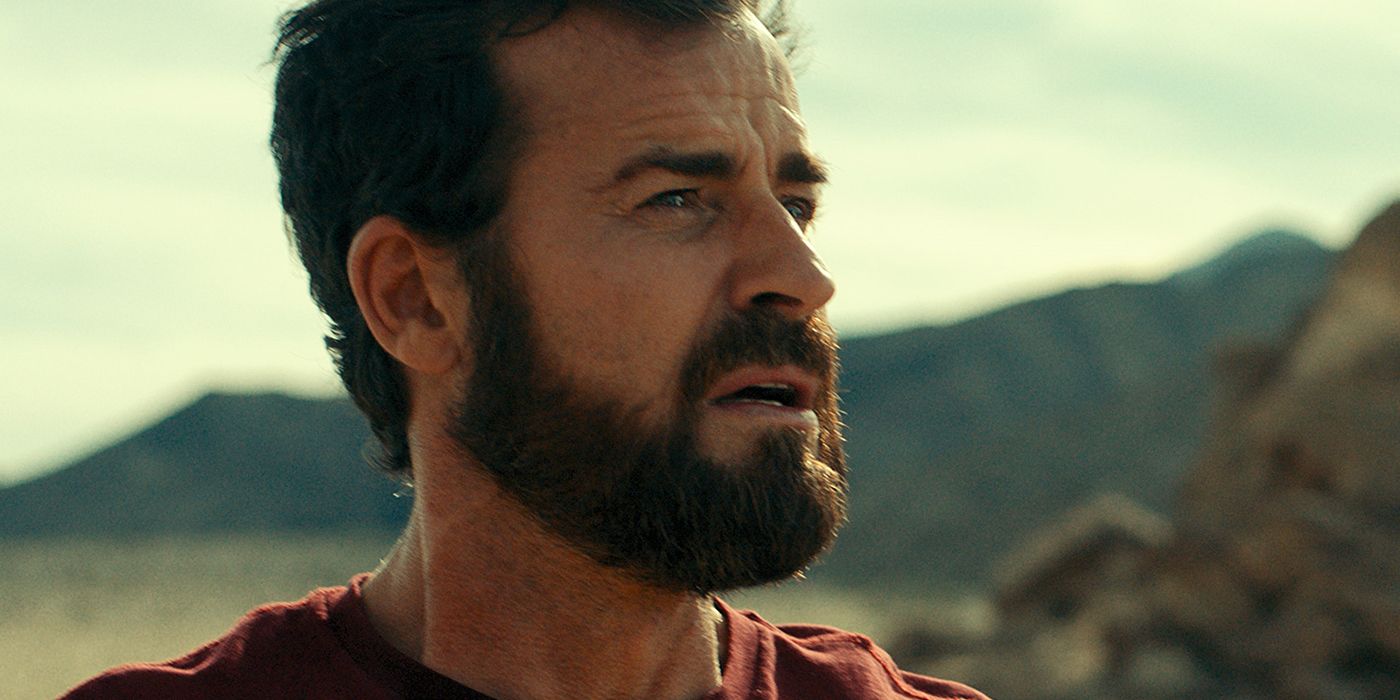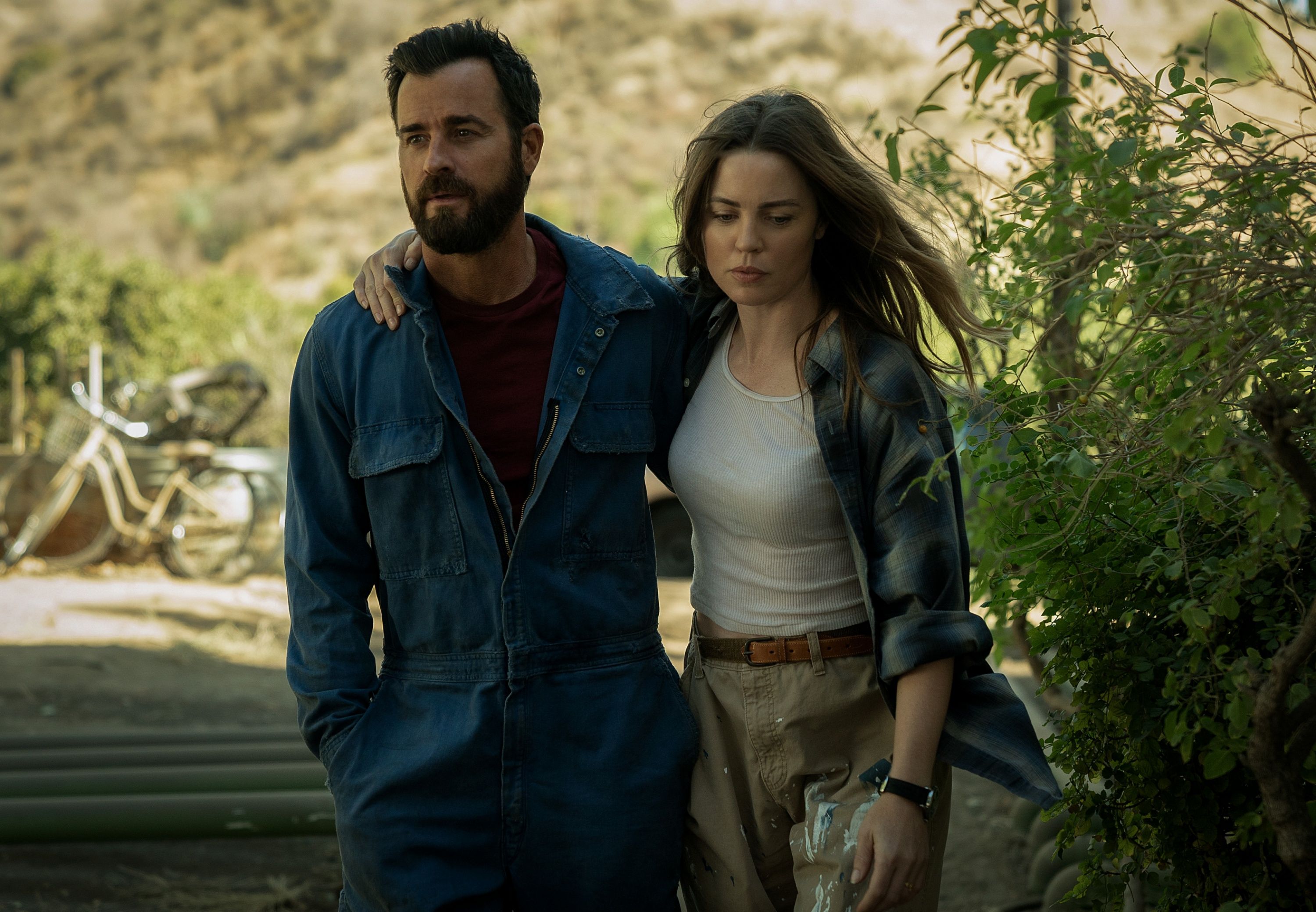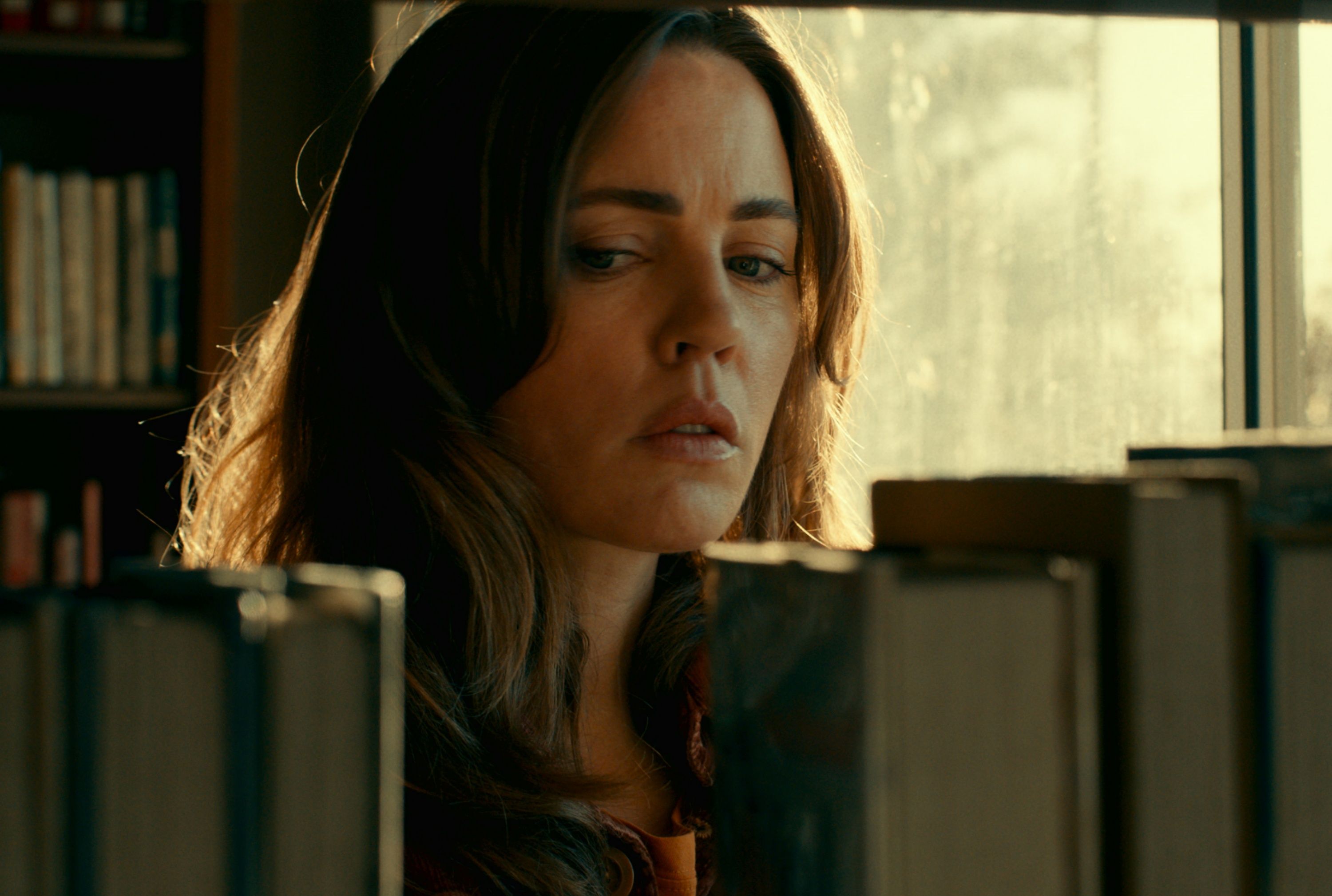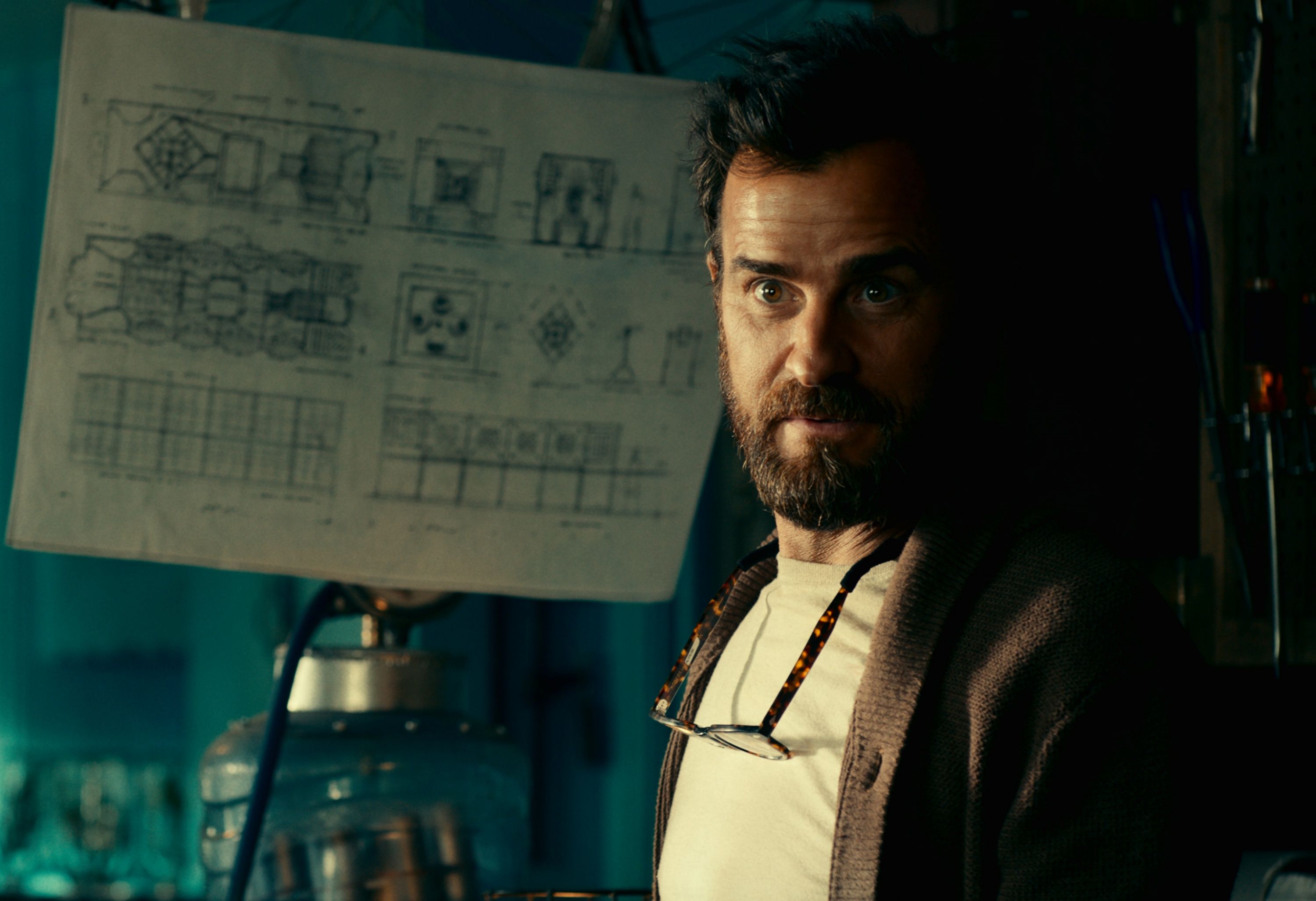From series creator Neil Cross (Luther) and adapted from the best selling novel written by Paul Theroux, the Apple TV+ original series The Mosquito Coast follows Allie Fox (Justin Theroux), a radical and resourceful idealist who takes his already off the grid family on the run to Mexico. With the US government after them and possible dangers lurking around every corner, the Fox family will be pushed to the limit with their survival at stake.
During this 1-on-1 phone interview with Collider, Rupert Wyatt, executive producer and the director of the first two episodes, talked about why he wanted to be a part of this series, what he connected to with the story, how he decided on the way he wanted to shoot the first two episodes, why he didn’t direct the entire season, what he feels Justin Theroux brought to the role, and where he’d like to go next with his career.
Collider: How did this come about for you? What brought you to this, to direct the first two episodes, along with also being an executive producer on the series?
RUPERT WYATT: It was the script, really. I’ve always said, as a director, if I’m coming onto something that’s not of my own making or my own writing, it’s important for me to really understand and know that I can see what’s evoked on the page in a similar way because it leads to an unhappy relationship, if that’s not the case. So, first and foremost, it was understanding, very quickly, reading Neil [Cross’] first two scripts that he was coming into scenes and going out of scenes in a similar way to how I would. He’s a very visual writer, as much as he’s a totally pronounced writer. And so, for me, it allowed me to immediately understand and see how best to mount a scene and explore the character. I knew, early on, that it was something that I thought I could do a good job with.
Were there specific aspects of the story that you found yourself personally connected to?
WYATT: Yes. Part of the appeal of storytelling is getting under the skin of the characters that you’re exploring and dissecting. I live away from the big city. I live in the Hudson River Valley. I live in a more peaceful part of the world and without a great deal of materialism. Even though I’m very privileged and fortunate in many aspects of my life, I like a simpler life where possible. I’m not on the run from the law, so I don’t have the same issues that the Fox family has, in that sense, but the notion of idealism inherent within Allie Fox is something that totally appeals to me. I’m a dreamer too, I guess.
Neil Cross told me that he’s not only was a fan of Paul Theroux’s novel and work, but he’s also a fan of Harrison Ford. Did you have any connection to the book or the movie, prior to signing onto this?
WYATT: I’d read the book and I’d seen the film, but some years before. I remember the book being on my dad’s bedside table when I was growing up. In my teens, I remember seeing the book for the first time there. And Peter Weir is a massive influence on me, as a filmmaker, and one of my favorite directors of all time. That, in a way, is a negative for me, personally. I would never have come to this to attempt to emulate somebody that I admire that much. The film is a much more faithful adaptation of the book than perhaps we are as a show, but that said, that’s narrative. I would say thematically, we’re still asking the same questions and hopefully exploring those characters in a way that pulls through, but the cause and effect of the storytelling is massively different. Something that Neil decided to do early on in the adaptation was to create a different engine.
What is it about Peter Weir’s work that you responded to so much? Was it something specific about his style that you liked?
WYATT: I think he’s one of the most human filmmakers. His work is obviously immensely diverse, from The Truman Show to The Mosquito Coast to Master and Commander. There are so many different aspects to his storytelling and his exploration of the world, but ultimately, it always comes back to character and motivation and what makes us human. He’s also somebody who’s fascinated by the notion of working within family units, whether it’s on a boat, or in te case of The Mosquito Coast it’s a nuclear family within the bloodline. I’ve always been moved by his work. Every film of his that I can think of, like Witness and the community of the Amish, he loves exploring communities within the micro, and then making sense of them within the world at large. I don’t know why that appeals to me, but I have similar interests.
One of the things that struck me about this was just how expansive the landscapes are. What is your process for figuring out how you want to shoot a project and what you want to shoot it with? Were there ways that you wanted to modernize the story visually that dictated certain cameras or lenses that you wanted to use?
WYATT: Yeah. So, the first two episodes take place in Northern California. That’s very different from the book, which was set more in the Northeast. We approached this with the idea that this is a family that is living out on the range. They’re living way off the grid, away from civilization, in many ways. And then, it becomes clear that they’re hiding in plain sight and there’s a real reason for that. But the landscape around them, for me reading it, evoked Steinbeck and Grapes of Wrath, and this idea of a breadbasket, but one that is also one of the final crutches of the modern world and consumerism and materialism, and all of those aspects of modern America. Even in the book, the capitalist aspects of American society were like a tidal wave on the horizon. You go into town and that’s everywhere, the fast food joints, the stores selling cell phones, and all of those things that the Fox family has moved away from. We wanted to bring that pallette of modern consumerist America into the landscape of the first two episodes, but we also wanted to combine it with the softer hues of Steinbeck country.
And then, camera wise, the idea is that this is a journey, and the journey being the destination, we made this choice, and I talked with the other directors for the rest of the show, to try to continue that. We never wanted to get ahead of our characters. We always wanted to follow them through environments, so we’re always on their backs. We’re always traveling with them, so that the audience experiences the journey as the characters do, rather than bringing them into an environment. The intention of that is to give it this freewheeling spirit of exploration and adventure. I have my DP to thank for the visual ambition of the show, in terms of how he was able to bring a really ambitious framing aspect to things. You can really see a vast, expansive landscape, and I was keen not to do that for any superfluous reason, but just always tried to show it from a storytelling aspect. Every time we went to drone photography, I wanted to try to focus on the idea that these human beings, these characters within the story were like insects in a nature documentary. The aspect of animals in our show, there’s a good reason for that, that becomes increasingly clear, as the show develops.
Did you ever think about directing all of the episodes, or was that not something you wanted to do or would have even been possible to do?
WYATT: I still have a long-held ambition of coming onto a show or building one of my own and directing across. I love long form storytelling, especially in this Golden Age of TV. I think there are so many things you can do, and I plan to do that, at some point. In this instance, a large part of it was made up through the practicalities of production. Unless you’re mounting a show as one massive feature, or you break it down into two different time frames and you’re cross-boarding episodes, it’s virtually impossible. I think Cary Fukunaga, when he did True Detective, shot that entire show in a hundred days, or thereabouts, but he had all of the scripts in hand, so he was able to do that. In this case, the scripts were being written as the show progressed, so it becomes more episodic, in that sense, and you have blocks. It became clear to me, as a director, that there was only really any possibility of just directing the first two. And then, when the pandemic hit, we already had our directors on board for the other episodes. We were truncated. The original plan was to make nine episodes and that came down to seven, so we made the choice that I would stay in post and help oversee the post side of things and let those other directors finish out the show.
It’s very unusual and rare that the lead of a show would also have a personal family connection to the source material. What was it like to with Justin Theroux on this? Aside from him being so personally connected to the material, what do you think he brought to the character?
WYATT: I think he was weaponized in a very invisible way. I never, ever felt, consciously, that he was bringing that, “My uncle did it for this reason. This is my interpretation of it, and I’m the nephew of the novelist.” He never brought that to the table, in a challenging way. It was all invisible. He made choices about the character, early on, that we then started to discuss and get on the same page about, that I think had a lot to do with his own personal understanding of people in his family that I believe Paul had based Allie Fox on. He’s an amalgamation of many different people, from my understanding, including Paul himself, and Justin had a firsthand understanding of that. He brought a lot of the personality and nuance inherently to the performance and he did it very subtly. I never looked to try to interrogate or better understand that because I don’t know those people. He was making those choices. For me, it was about acting as his mirror, in many ways, and reflecting his performance back on him, in relation to the story as a whole. We knew early on that this is a character that is genius, in so many ways, and is perhaps some steps away from insanity. That journey between genius and madness is a fascinating one to explore. We wanted to dial it back to the early days of Jim Jones, with the charisma, the empathy, the drive, the zeal, and the idealism. By all accounts, Jim Jones was a pillar of his community and very progressive, and adopted children of multiple ethnicities and did so in a very white climate of California in late ‘60s. He was incredibly well liked, like most cult leaders are, in the early days. And so, what is it that takes you from that person to a man that’s gonna become a murderer?
What do you enjoy most about the process of working with actors and the relationship that you develop with them on set?
WYATT: The unexpected. I love actors that understand what it means to be a director. I don’t know if that makes sense, but often there’s this delineation of roles. You feel like you’re playing tennis across a net. With certain actors like Justin, and other actors I’ve worked with in the past like Andy Serkis and people like that, they inherently understand storytelling and why you’re making choices, or they’re asking you the questions, as to why you’re making the choices, because they understand the importance of it. In many ways, an actor needs to direct the director, and the director needs to direct the actor. If you find somebody that can do that, it’s an incredibly satisfying relationship and one that actually can create really interesting stuff. There are certain actors you hear about that no longer take direction and often you can see how that is problematic because they don’t have the mirror that’s held up to them. They don’t understand the scene that played out when they weren’t in it with other characters, and the pace and mood and tone of that scene. It’s the job of the director to feed information to the actor. I love a relationship with an active that’s a collaboration. It’s like writing a script together, but doing that on screen.
Do you know what’s next for you? Do you have a next project lined up? Do you want to stay in this TV landscape or are you looking to direct a film next?
WYATT: All of the above. The world is changing and, especially with the pandemic, there are a lot of questions being asked about, what is the future of theatrical filmmaking? I hope it remains solid. I think it will. The notion of watching film and storytelling in a communal environment is paramount to me. Of course, there’s an aspect of that, which you can do at home, in the family sense, but there’s nothing like going to the theater to see a movie, in my opinion. I would dearly love to make another feature film. I also love working as a tailor, as it were, in television. Being a pilot director is a really interesting skill set to develop. Especially when you’re working with like-minded people like Neil Cross it’s really satisfying. I would also love to develop something in TV of my own.
Have you talked about directing more, if there’s a second season of this?
WYATT: Yeah, I’d love to. If Season 2 comes alive and I have the opportunity to, then yes, a hundred percent. I think there’s a lot to be done with this show. Continuing to work with these people would be really appealing, so I’d love to come back. There’s a shorthand now. There are a lot of questions that we’ve asked of each other that we can start to answer in Season 2. Whilst I would say Season 1 is an out-and-out adventure story, it’s very propulsive. It’s an external story where we’re putting obstacles in the way of his family. With Season 2, there might be an opportunity to really start to explore the skin of these people, now that we’ve gotten to know them a bit better and get a sense of who they really are and started to test them in interesting ways. Going to that more internal place is something that I think would be really exciting to be a part of.
The Mosquito Coast is available to stream at Apple TV+, with new episodes on Friday




